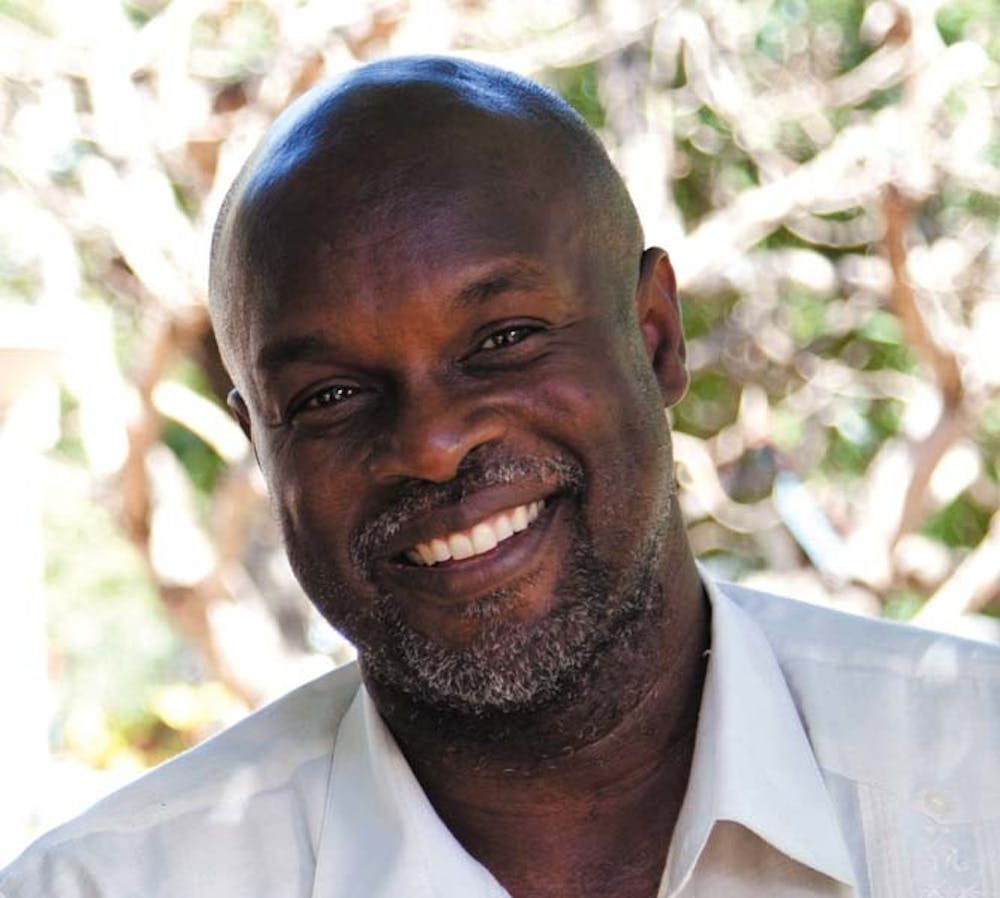
Tukufu Zuberi, Department of Sociology chair, directed the film “African Independence,” which won the Best Documentary Film Award at the 2013 San Diego Black Film Festival.
Credit: Courtesy of Marcus WrightOne sociology professor is doing more than research outside the classroom — he’s becoming an award-winning filmmaker.
Department of Sociology chair and Lasry Family Professor of Race Relations Tukufu Zuberi received the Best Documentary Film Award and the Best Director Award at the 2013 San Diego Black Film Festival for his film, “African Independence.”
“African Independence” is a feature-length documentary that focuses on the evolution of the African continent towards independence since the time of enslavement and colonization. It premiered on Jan. 31 as the festival’s opening film.
“We channel the voices of 20 Africans who were either freedom fighters, leaders or individuals who were critical to the achievement of independence on the African continent,” Zuberi said.
Zuberi produced the film with TZ Production Company, which he founded in 2007. He also hosted and narrated the film.
“This is a film about the most important thing to happen on the African continent in the 20th century,” Zuberi said. “[It’s about] the movement of Africans and how they transformed the African continent into a place of hope.”
“We are telling the stories of people who live and fight for change,” Jabari Zuberi, Professor Zuberi’s son and the creative director and editor of the film, said.
While “African Independence” is Zuberi’s first documentary, he is not a stranger to the world of film. Twelve years ago, PBS contacted Zuberi and asked him to participate in a show called “The History Detectives,” which he has hosted for the past 10 seasons.
“I thought [The History Detectives] would distract me from my mission as an educator,” Zuberi said. “But after being on the air, I realized that there is great potential in film as a way of communicating ideas.”
After a few years of working on “The History Detectives,” Zuberi began to develop his ideas for “African Independence.” Part of his mission was to challenge people’s beliefs that Africa is only a place of violence, disease and poverty.
“[People have] misconceptions about Africa,” said College senior Seck Barry, who worked as an intern on the film and is originally from Guinea. “[The film] dismisses what you get from the newspaper and [acts] as a tool to educate the public about what’s happening in Africa and how it impacts the world we live in today.”
Barry reached out to Zuberi as soon as he got to Penn as a freshman, as he knew of Zuberi’s interest in human rights and in “giving voice to the people — particularly people of Africa,” he said.
During the film’s production, Barry collected research and traveled around Africa with Zuberi and his film crew. He also captured the experience through blogging and posting on social networking sites such as Facebook and YouTube.
“There are challenges you face everyday,” Barry said. “I learned from Tukufu that you can resolve these issues by engaging in conversations and creating a space for people to talk.”
After finishing the film last month after eight years of working on the project, Zuberi submitted the film to a number of different film festivals and was pleasantly surprised to see how well the film was received. He received his awards at the San Diego Black Film Festival to his “utter surprise and astonishment.”
“I simply could not believe it,” he said.
“We just wanted to tell a story about Africa that hadn’t been told before,” Jabari Zuberi said. “It was both humbling and gratifying [to receive] accolades for the hard work you’ve done.”
Yet the Zuberis are most excited about how widely the film has been circulating.
“The fact that so many people have watched [it] has been phenomenal,” Jabari Zuberi said. “It shows people’s interest in the ideas and message of the film.”
Zuberi expects to show the film at other significant film festivals this year as well as at Penn. He hopes that the film will change people’s attitudes about Africa.
“I want people to leave the room and when someone talks to them about Africa their first thought won’t be poverty, disease and war, but it will be the energy that African people have been able to garner and how they have been able to make life better [for themselves] on the African continent,” he said. “I want people to think not what can we do for Africa, but what can we do with Africa.”
The Daily Pennsylvanian is an independent, student-run newspaper. Please consider making a donation to support the coverage that shapes the University. Your generosity ensures a future of strong journalism at Penn.
DonatePlease note All comments are eligible for publication in The Daily Pennsylvanian.








